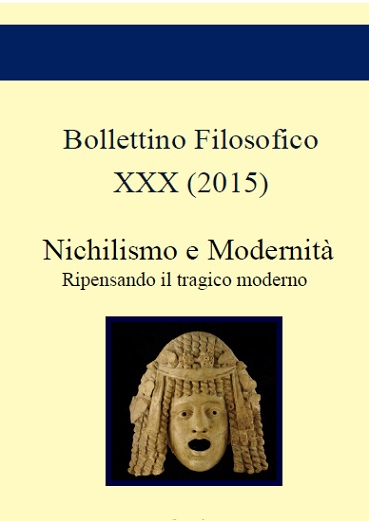
«Con il sapere tragico ha inizio il movimento della storia»: così Karl Jaspers riflette sulla genesi della civiltà umana. La tragicità del sapere storico giunge a consapevolezza attraversando il problema dei limiti del senso e quello correlato del “nulla”. La questione del nichilismo affonda le sue radici in questo terreno speculativo rappresentando una risposta, polimorfa e moderna, a problemi antichi.
Il nichilismo, un evento culturale controverso, da taluni definito “anima profonda della modernità” è spesso utilizzato come accusa filosofica per screditare gli avversari sul piano logico e su quello morale. A partire da Nietzsche, è diventato un termine di confronto importante per numerosi pensatori, che hanno visto in esso, di volta in volta, un transitorio decadimento della razionalità umana o l’inevitabile esito del fato postmoderno, al punto che Wilhelm Weischedel ha ritenuto di definire il pensiero contemporaneo come un filosofare all’«ombra del nichilismo».
Il “Bollettino Filosofico” si propone di rilanciare il dibattito sul rapporto tra “nichilismo e modernità” per sondarne le attuali declinazioni nelle diverse aree disciplinari e nei diversi ambiti (etico, estetico, gnoseologico, politico e religioso), alla luce dell’urgenza con la quale i problemi della crisi di senso, fondamenti e valori si manifestano nel sentire contemporaneo, nell’intento sia di focalizzare la pluralità di forme che suscita la riflessione su un tema così ampio, sia di individuare le piste ancora inesplorate del dibattito contemporaneo su questo tema.